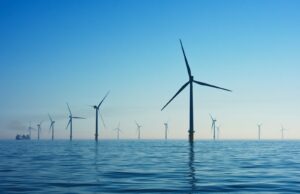With plans to cut shipping emissions by at least 50% by 2050, the use of e-fuels will play an important role in decarbonising the shipping industry, according to a report published in collaboration with Ricardo and the Environment Defence Fund.
Shipping transport emits around 940 million tonnes of CO2 annually and is responsible for around 2.5% of global greenhouse gas emissions globally.
The report, which was published earlier this month, discusses how synthetic fuels created from renewable energy could, therefore, play an important role in decarbonising the international shipping industry.
Hydrogen fuel could be used as a fuel directly or it could be used to produce green ammonia or carbon-based fuels like methanol.
The authors of the report acknowledge that the transition to these e-fuels is not without challenges, but providing the challenges are addressed, carbon-neutral e-fuels offer a sustainable alternative.
Chile is used as a case study because it is heavily reliant on shipping for both international trades and for domestic transportation, and with one of the largest renewable energy capacities in the world, with over 1,200GW of solar potential alone, it could possess large untapped resources to unlock investment in new clean energy and infrastructure.
Chile also has a unique location and so could become the South American hub for clean shipping.
If Chile was to invest in its renewable energy for shipping, this will resonate with the International Maritime Organisations (IMO) goals to cut greenhouse gas emissions from shipping by at least 50% by 2050 compared to 2008 levels.
Nick Ash, principal consultant of Ricardo’s energy team said: ‘Ricardo is pleased to have been able to contribute to this important study on behalf of the Environmental Defence Fund.
‘The report shows that Chile has huge potential to decarbonise not only the shipping sector but its whole economy and implementation of zero-carbon marine fuels can be a driving force.
‘This would also help to increase the country’s energy security and minimise its reliance on fossil fuel imports.’
In related news, 46 cruise ships operated by Carnival Corporation emitted almost 10 times as much sulphur oxide (SOX) around European coasts than 260 million European cars in 2017, new analysis has revealed.
Photo Credit – Pixabay
















